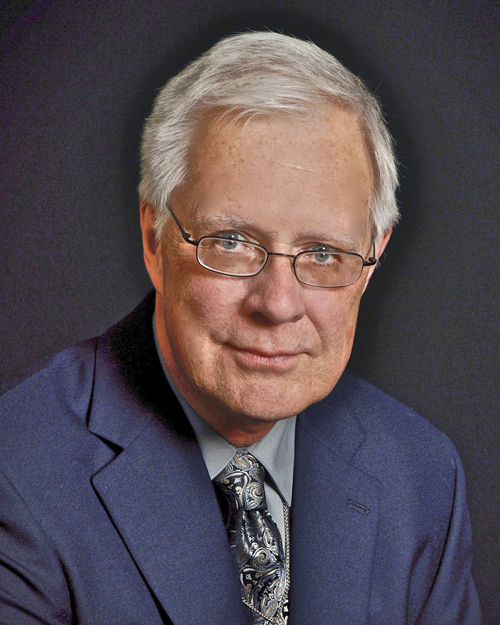By Greg Cusack
The recent flurry of reports about anxious and angry parents demanding that certain books be removed from their schools’ bookshelves strikes an echoing note, as I can remember several periods of like concerns in my almost 80 years of life. While I concur that some of these highly publicized efforts may be driven by racial bias or gender-identity concerns, I think they both reflect some deeper unsettling trends in this country as well as providing us with some opportunities.
The fading of “parental control”

When I was growing up in the ‘40s and ‘50s parents were able to exert a great deal of control over what their children saw, read or experienced. This was long before social media, of course, so it was far easier to monitor print material that entered the home and to oversee whom your children were hanging out with. Parents didn’t have to be concerned about potentially harmful images appearing on a young person’s cellphone or even, for most parents until the early ‘50s, unwanted images via television. Of course, this was far from foolproof since, as the old saying goes, where there’s a will there’s a way, but parents definitely had more control over their children’s development than is true today.
Another aspect of that time was perhaps even more important: their own mores were reflected by the larger society! In the 1950s, church and synagogue attendance reached levels that have not been equaled since and it “felt” as if the country was comfortably united as a center-right, Protestant-inclined “Christian” nation. Government, authority figures and great institutions received respect and few questioned that America was on “the right track.”
While I acknowledge that this certainly did not reflect the reality of millions of Americans — people of color and the very poor, in particular — it did create a feeling of dependable “normalcy” for those of us growing up white and middle class. This was, after all, the high mark of economic equality in the United States.
The United States today, in marked contrast, is a very unsettled place. Authority figures of all sorts have lost much of their former credibility, politics has been transformed into a fight of “all against all,” and the influence of “others” on children — many of them unbidden by parents — seems to pervade everywhere. No wonder parents are anxious! Their own lives feel deeply unsettled as competing values and lifestyles receive equal legitimacy to the standards taught them by their parents and grandparents. Unlike the distant 1950s, it is likely that both parents have to work in order to sustain their families and the challenges facing single parents are truly staggering!
Try as they might, through their own words and examples, they cannot prevent their children from being flooded with unwanted images and messages that not only seem but often are morally subversive.
My God, we are losing our children!
Within this larger context, we must assess the current discomfort of many parents over the books their children are exposed to and the lessons they are being taught. Will these things combined lead them even further away from the culture and mores of their families? Are their children in environments that encourage them to experiment not only with drugs but with changes to their bodies and their self-perception? I think it is a grave mistake to dismiss such anxieties as trivial or groundless. These parents are good people who feel threatened by the possible injury or loss of their children. Let us not mock or dismiss them!
An opportunity
I recognize that some people of ill will — the same kinds of persons who revel in creating turmoil everywhere in politics and civic life — are using parents’ legitimate concerns to advance their own goals. While not ignoring them, we should focus on the far-more-numerous, good-hearted and caring parents, instead.
With renewed parental concern about their children’s education — however misplaced or exaggerated this may seem to be in the eyes of some teachers, administrators and school boards — we have an opportunity to find new engagement of parents with their children’s teachers and with their children.
We have a daughter who teaches fourth grade in a public school and her classroom has almost 30 children who speak more than 15 languages! She has to deal with children who routinely act out, disrupting the tenor of the classroom, as well as those who struggle to keep awake and alert because they have not had breakfast at home. She has to be alert to those with special needs, especially since many resources once available to teachers were trimmed back due to budget cuts, leaving teachers having to juggle multiple roles.
If parents better understood what teachers struggled with, the parents could become allies in demanding better and sufficient resources so that all their children receive a good education. If teachers better understood the concerns of individual parents, they could become partners in working with those parents for the good of their children.
Absent the kind of engagement so sorely lacking throughout our society today, the current tensions between parents and those to whom they entrust their children can only increase. Every time a parent gets or seems to receive a brush-off from a teacher, administrator or school board, this can only make them more frustrated and enraged at how the “elite” are treating them. Without engagement, all of this just becomes rich material for the demagogues and hate-encouragers among us; with engagement, we might rediscover how to become partners towards the educational experience we want for our children.
A child is too precious to waste! So is a caring parent!
(Greg Cusack taught college, served on the Davenport City Council from 1969-73, and the Iowa House of Representatives from 1971-81. He then served as executive director of National Catholic Rural Life Conference from 1981 until late 1986. His public service continued in other areas until he retired as Chief Benefits Officer of the Iowa Public Employees Retirement System in 2004.)











